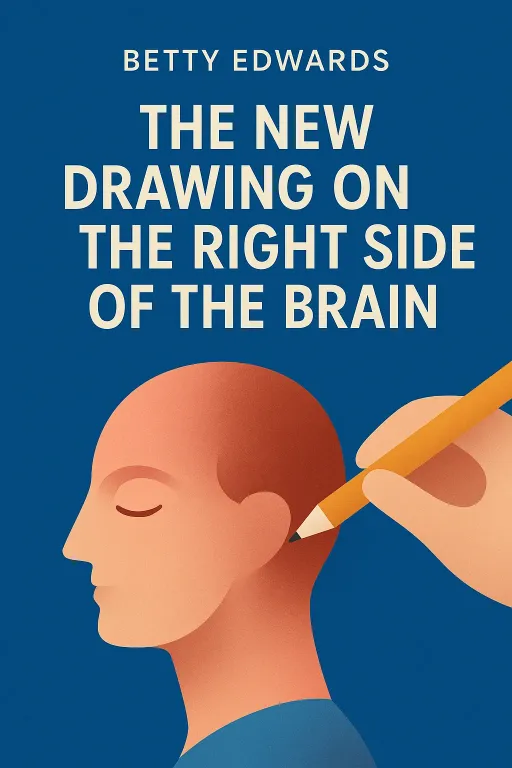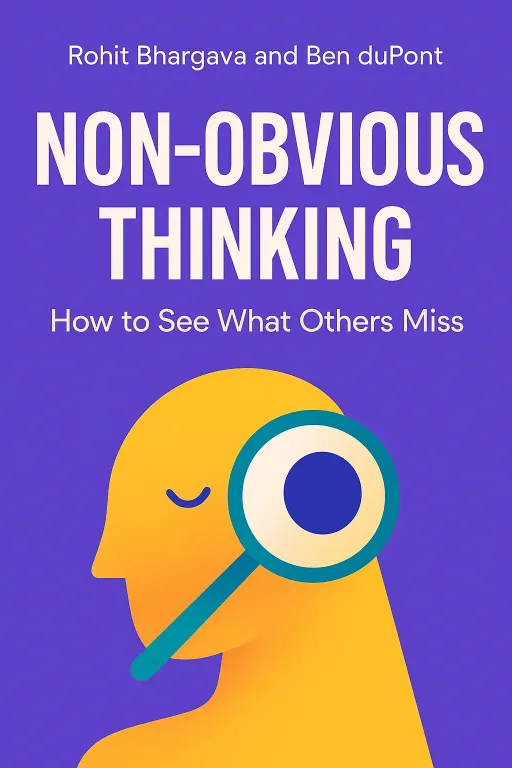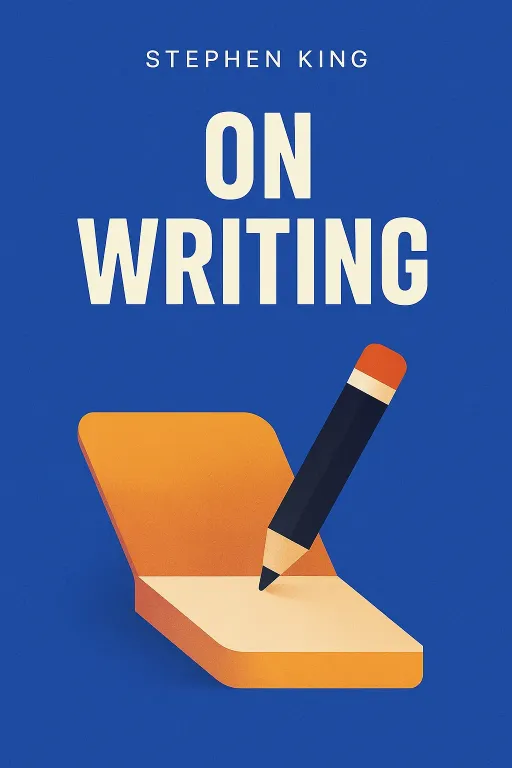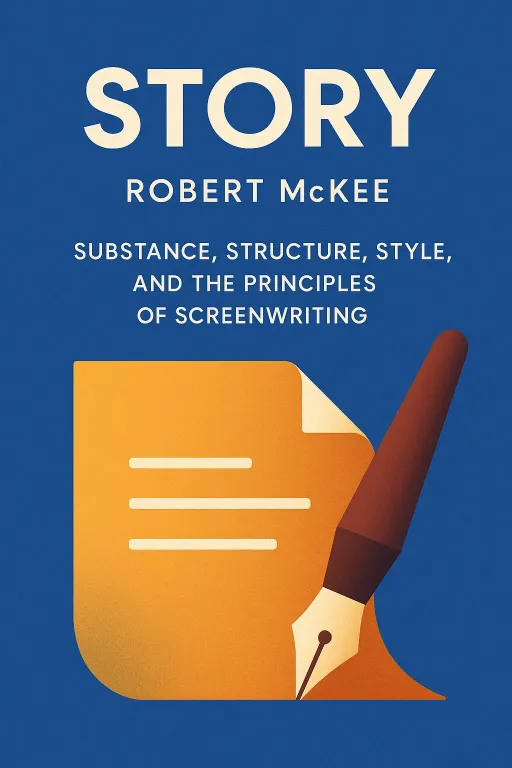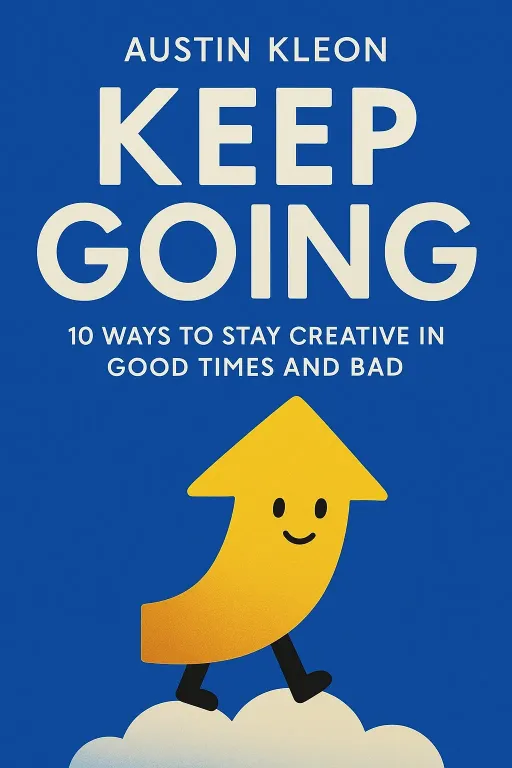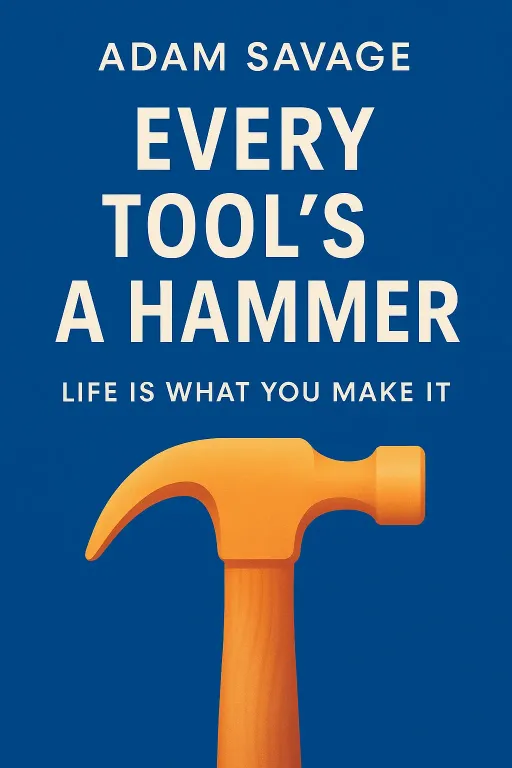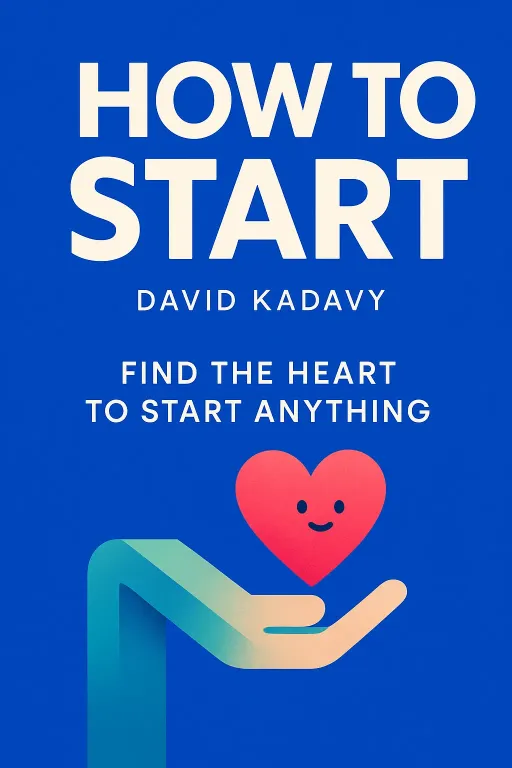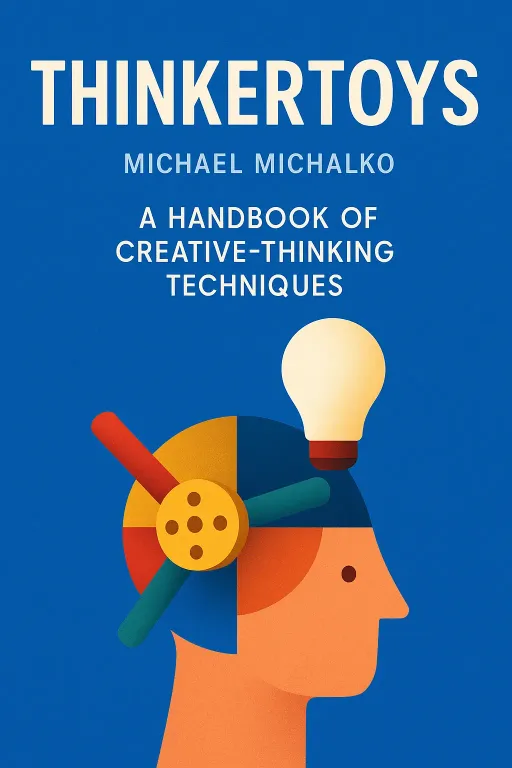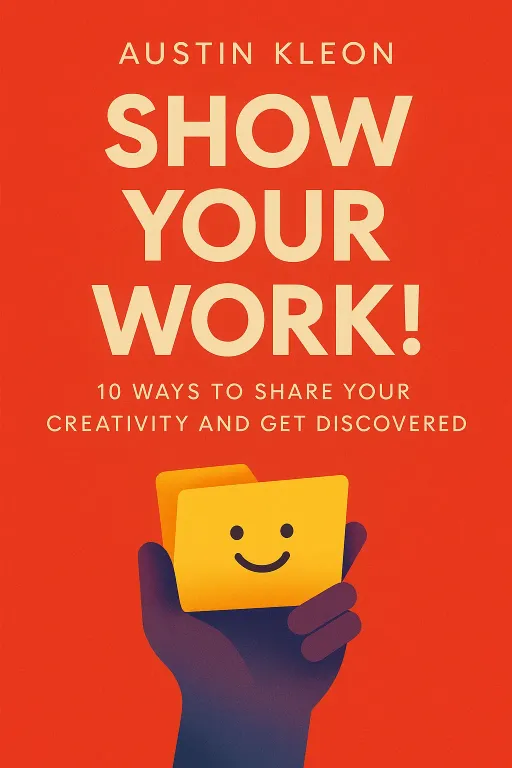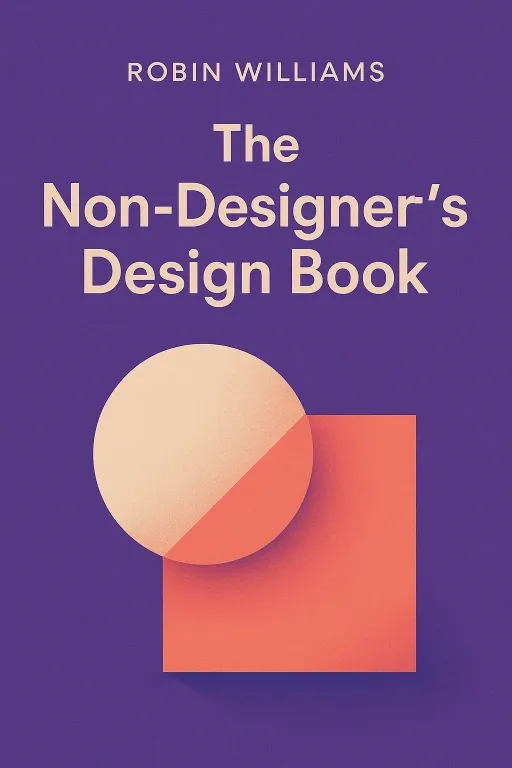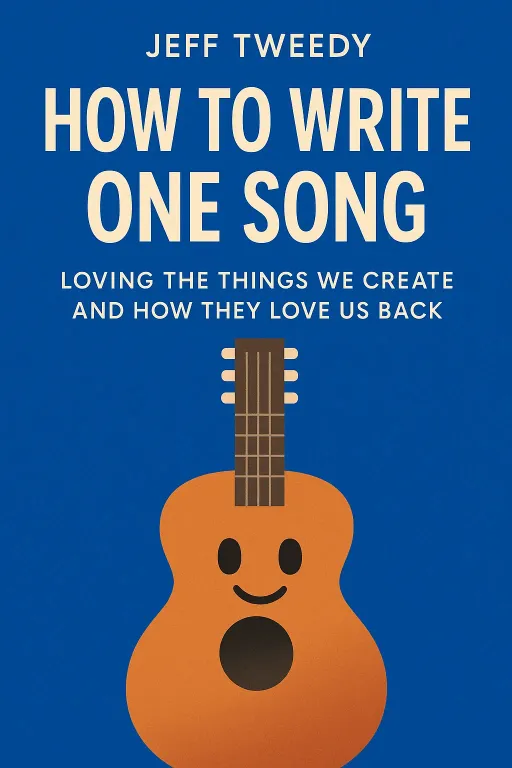
The Muse is a Myth
13 minGolden Hook & Introduction
SECTION
Rachel: Okay, Justine. Five-word review of a book about songwriting. Go. Justine: Hmm. "Magic muse is a myth." Rachel: Ooh, spicy. I like it. Mine is: "Just show up, do the work." Justine: Wow, so we're on the exact same page. This isn't about waiting for lightning bolts from the heavens, is it? Rachel: Not at all. It’s about something far more reliable, and maybe even more magical in its own way. And that's the heart of How to Write One Song by Jeff Tweedy. Justine: The Jeff Tweedy? From Wilco? I always picture him as one of those guys who just... bleeds songs. Effortlessly. Like he wakes up and a perfect, heartbreaking melody has appeared on his pillow. Rachel: Exactly! And that's what's so fascinating and why this book is so special. Here's this prolific, widely acclaimed songwriter, a guy who co-founded the legendary alt-country band Uncle Tupelo and has won Grammys, and he's basically writing a whole book to say, 'It's not magic, it's a job. A wonderful, weird job, but a job.' Justine: That’s so counterintuitive. It’s like a master chef telling you the secret to a great meal is just… turning on the stove. Rachel: Precisely. He even shares this amazing anecdote that he started calling himself a songwriter when he was just seven years old. He sees it as this little self-actualization trick he played on himself. He decided what he wanted to do, and then he just started doing it. Justine: Wow. Okay, so he's pulling back the curtain on his own mystique. I'm in. But I have to admit, the idea that 'inspiration is overrated' sounds a bit… soul-crushing. Don't you need at least some kind of initial spark to get going?
The Myth of Inspiration: Process Over Perfection
SECTION
Rachel: I hear you, and that’s the first big myth he wants to dismantle. He makes this brilliant distinction between aspiring to BE something versus being driven by what you want to DO. Aspiring to BE a "songwriter" is paralyzing. It comes with all this baggage—what a songwriter looks like, sounds like, how much they suffer for their art. Justine: Right, you’re picturing some tortured genius in a dusty attic, not, you know, a dad in Chicago, which is what he is. Rachel: Exactly. But focusing on the DOING—the simple act of writing, of putting words together, of finding a chord—that’s manageable. That’s a verb. And he argues that inspiration doesn't usually come before the verb; it comes during it. The process itself is what generates the good stuff. Justine: That makes sense, but it still feels abstract. Like, what happens when you have zero inspiration but a very real deadline? Rachel: Ah, I'm so glad you asked. He has the perfect story for this. It’s about the song "Can't Stand It." In the late 90s, his band Wilco had just finished their album Summerteeth. They were proud of it, they hand it over to the record label, and the executives basically say, "This is great, but we don't hear a single." Justine: Oh, the classic, dreaded feedback. The kiss of death. Rachel: The absolute worst. They essentially tell him, "Go write a hit." And instead of waiting for the muse to strike, Tweedy does something amazing. He lies. He tells them, "Oh, yeah, I've got just the thing. I'll be right back." Justine: No he didn't! That’s gutsy. So what did he do? Rachel: He gets on a plane to Los Angeles, and on that flight, driven by pure professional demand and a little bit of panic, he writes the song. He just sits down and does the work. He forces it. He treats it like an assignment. And the song that comes out, "Can't Stand It," becomes one of their most beloved tracks. Justine: He just... wrote a hit on a plane because they asked him to? That's insane. That completely shatters the image of the artist waiting for a divine message. Rachel: It does! And that’s his point. He learned that demand can be a catalyst. A deadline can be a collaborator. He says, "Inspiration is not always the first ingredient in a song." Sometimes the first ingredient is just the need for a song to exist. The work itself invited the inspiration. Justine: I can see how that would be freeing. It takes the pressure off. You don't have to feel divinely inspired to start; you just have to start. It reminds me of all the times I've put off doing something creative because I was waiting for the 'perfect mood' or the 'perfect idea.' Rachel: And that perfect moment never arrives, does it? Tweedy’s approach is to build a habit. To create a space and a time for the work, and to just show up. The magic isn't in the waiting; it's in the repetition, the routine. It's in the doing. Justine: Okay, I'm sold on the 'doing.' So once you're sitting down, ready to work, but the words feel stale and boring... what then? How do you make the 'doing' actually produce something interesting?
Hot-Wiring Language: The Music of Everyday Words
SECTION
Rachel: This is my favorite part of the book. Once you commit to the 'doing,' the next step is to make that work playful, not a chore. Tweedy has these fantastic, almost mischievous exercises for what he calls 'hot-wiring' your language. Justine: Hot-wiring? I love that. It sounds slightly illegal. Rachel: It feels like it! The idea is to break your brain out of its normal, logical patterns. We use language to communicate clearly all day, but songs and poems often work by creating unexpected connections. So, he suggests these games to trick yourself into being poetic. Justine: Okay, I'm intrigued. Give me an example. This sounds like my kind of weird. Rachel: It’s called the "Word Ladder." He tells you to take two completely unrelated categories. For instance, he uses "Physician Verbs" and "Random Nouns You Can See From Your Chair." Justine: Physician verbs? Like... 'diagnose'? 'operate'? Rachel: Exactly. He lists ten: Examine, Thump, Prescribe, Listen, Write, Scan, Touch, Wait, Charge, Heal. Then he lists ten nouns he sees: Cushion, Guitar, Wall, Turntable, Sunlight, Window, Carpet, Drum, Microphone, Lightbulb. Justine: This is already wonderfully strange. So what do you do with them? Rachel: You just start connecting them in ways that don't make logical sense. You let the words themselves guide you. He ends up with this little poem: "the drum is waiting by the window listening where the sunlight writes on the cushions prescribed thump the microphone the guitar is healing..." Justine: Whoa. "The guitar is healing." I love that. And "the sunlight writes on the cushions." That's a genuinely beautiful image that you would never arrive at by thinking logically about what to write. Rachel: Never. You're not trying to "say something." You're just playing with words as if they're musical notes or blocks. You're letting them bump into each other and create sparks. He says the goal of these exercises is to "soften our brains" so that language can reveal the beauty and pain hidden just beneath the surface of everyday communication. Justine: It's like Mad Libs for poets. It completely lowers the stakes. You can't get it 'wrong' because there's no right answer to begin with. The goal is just to create a surprising combination. Rachel: And that's the key. It bypasses your inner critic. That voice in your head that says, "That's a dumb idea" or "That's not profound enough" doesn't even have time to chime in because you're just following the rules of a simple game. Justine: I also notice the words themselves are all very simple. 'Drum,' 'wall,' 'sunlight.' He’s not using a thesaurus to find fancy, 'poetic' words. Rachel: That’s another one of his core tenets. He believes the most powerful songs use simple, precise language, but in an uncommon way. He says, "Fancy multisyllabic words aren’t going to make a lyric better." They often break the spell. The magic is in taking a word like 'window' and pairing it with a verb like 'listen.' Justine: These exercises are great for getting words on a page, but I'm hitting on another fear. What if you do all this, and you still feel like you have nothing to say? What if your life just feels... not song-worthy? I think that's a huge barrier for people.
The Courage to Be Someone Else: Finding Your Voice by Losing Yourself
SECTION
Rachel: You've just hit on the emotional core of the book. That feeling of "my life isn't interesting enough" is maybe the biggest obstacle of all. And Tweedy's advice is so simple and so profound. He just says: "BE SOMEONE ELSE." Justine: Be someone else? Like, write a song about being an astronaut or a pirate? Rachel: It could be that, yes! But it's deeper. It's about giving yourself permission to step outside your own narrow perspective. He tells this incredibly moving story from when he was making the album A Ghost Is Born. It was a very dark period for him. He was struggling with addiction, with severe anxiety and depression. He felt totally disconnected from himself. Justine: I can't imagine trying to write songs from that place. It must have felt impossible. Rachel: It was. He said he couldn't bear to write from the perspective of "Jeff Tweedy." The idea was just too painful. So, inspired by the children's books he was reading to his young sons, he decided to try writing from the perspective of animals. Justine: Okay, that's a twist I did not see coming. Rachel: Right? And he wrote this one song, "Company in My Back," from the point of view of an insect at a picnic. Justine: An insect? You're kidding. Rachel: I'm completely serious. And listen to some of the lyrics that came out of that exercise. He writes, "I attack with love, pure bug beauty / I curl my lips and crawl up to you / And your afternoon / And I’ve been puking." Justine: Wow. That's... incredibly vulnerable and raw. "Pure bug beauty." "I've been puking." He's talking about himself, isn't he? That feeling of being this small, maybe even grotesque thing that is both beautiful in its own way but also completely unwelcome. Rachel: Precisely. He could only get to that level of honesty by putting on a mask. The persona of the insect gave him the emotional cover he needed to express something deeply true about his own state of mind. He says the song ended up being one of an almost embarrassingly revealing nature. The disguise is what allowed the truth to come out. Justine: That gives me chills. It’s such a powerful paradox. To find your most authentic voice, you first have to pretend to be something you're not. It’s a way to trick that self-conscious part of your brain that’s always trying to protect you. Rachel: It is. And he makes the crucial point that no matter who you pretend to be—an insect, Johnny Cash, your next-door neighbor—it's always going to still be you. Your unique perspective, your vocabulary, your heart... it will all shine through. He says, "It’s always going to still be you. And that’s a great thing." Justine: That's so reassuring. It takes away the fear of not being 'enough.' You can borrow someone else's life for a little while, and in doing so, you might just find the most interesting parts of your own.
Synthesis & Takeaways
SECTION
Rachel: And that really ties everything together, doesn't it? The whole journey he lays out is about dismantling fear. First, you dismantle the fear of not being inspired by committing to a process—just doing the work. Justine: Then you dismantle the fear of not being poetic or clever by playing these simple, low-stakes word games that trick you into creativity. Rachel: And finally, you dismantle the deepest fear—that you're not worthy of a song—by giving yourself the freedom to be someone, or something, else entirely. It’s a roadmap for getting out of your own way. Justine: So the one song isn't really the ultimate goal, is it? It's the byproduct of learning how to... disappear into the process. Rachel: That's it exactly. He has this beautiful line at the end of the introduction. He says the goal is "to spend time in a place where you just are... That’s something that doesn’t happen through songs—plural. It happens only when you’ve lost yourself in the process of making one song." The song is the artifact, but the transformation happens in the making. Justine: I don't like every song I write, but I like that I wrote it. That’s a quote from the book that really stuck with me. It’s about valuing the act itself. Rachel: It is. It's about the connection you make with yourself during the process. And then, he says, the final step is to share it. A song isn't quite finished until it's been heard by at least one other person. It’s a plea, a way of reaching out. Justine: It makes me want to try one of those word ladders right now. Honestly, that sounds like more fun than half the things on my to-do list. Rachel: Me too. And for anyone listening, if you do try one of these exercises—the word ladder, writing from the perspective of your pet, whatever it is—we would genuinely love to hear what strange, beautiful thing you create. It’s all about adding your voice to the conversation. Justine: Absolutely. Let us know. It’s a powerful reminder that creativity isn't some exclusive club. It's a fundamental human act that's available to all of us, anytime we choose to show up for it. Rachel: This is Aibrary, signing off.
